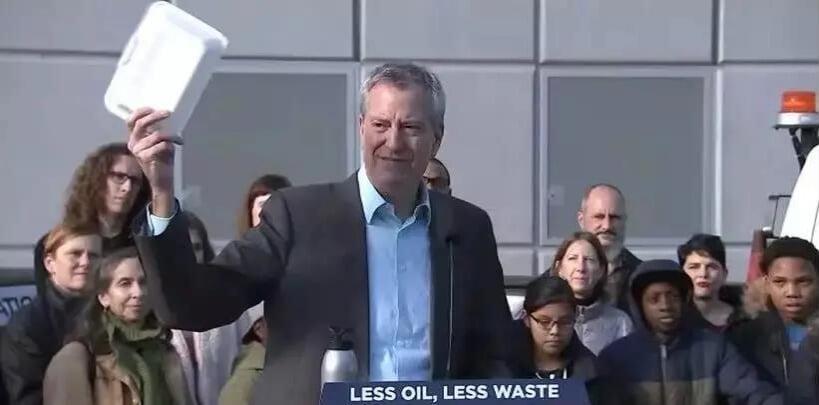Polystyrene foam food packaging, made from a rigid plastic called polystyrene, poses many environmental problems. In response, New York State will ban the use of single-use foam polystyrene plastic food containers and packaging starting January 1, 2022. Violators will face a $250 fine, and repeat offenders will face fines of $500, $1,000 and $2,000.


Democratic State Senator Todd Kaminsky (D-CA)
According to the New York Department of Environmental Conservation , the new rules apply to restaurants, caterers, food carts, food trucks, grocery stores, grocery stores, cafeterias, coffee shops, delis, universities, schools, etc. However, there are some exceptions to the ban, including raw meat and seafood sold with the intent of allowing customers to prepare it off site. Non-profit organizations and venues that provide food to those in need may also continue to provide food packaged in foam polystyrene if they qualify for certain exemptions.
There is no federal ban on foam polystyrene packaging, and all current bans are on the city or county level. In addition to New York, 11 other U.S. cities do not allow the use of foam polystyrene packaging to serve food or beverages, including major cities such as San Francisco (California), Portland (Oregon) and Seattle (Washington).
Without foam polystyrene, what's next for take-out food packaging? Companies producing and developing alternatives to traditional food packaging are focused on using sustainable and biodegradable materials that release little to no chemicals when processed.
One of the most popular alternatives to foam polystyrene in recent years has been the use of plant fibers to create compostable food take-out containers.
Many different fibers can be used for this application, including sugar cane, corn, potatoes and bamboo. Packaging made from paper, especially recycled paper, is another common choice. While these materials are compostable, some compostable packaging contains "permanent chemicals" that never decompose. A Hong Kong-based company called Ecoinno uses sugar cane and bamboo to make take-out containers without the use of any of these special chemicals or plastics.
This past summer, delivery service Delivery Hero launched a sustainable packaging program for the restaurants it serves in an attempt to reduce single-use and toxic packaging waste.
QSRs such as Burger King and Taco Bell have begun experimenting with various alternatives to their original disposable packaging, such as reusable, recyclable and compostable packaging.
This week, a London company called Notpla raised €11.7 million ($13.1 million) for its "disappearing" seaweed packaging. The replacement packaging completely degrades within 4-6 weeks without the use of any special treatment. Although NotPla's packaging is intended to be a direct replacement for plastic rather than foam polystyrene, this still has potential for use in restaurants and food spaces.

